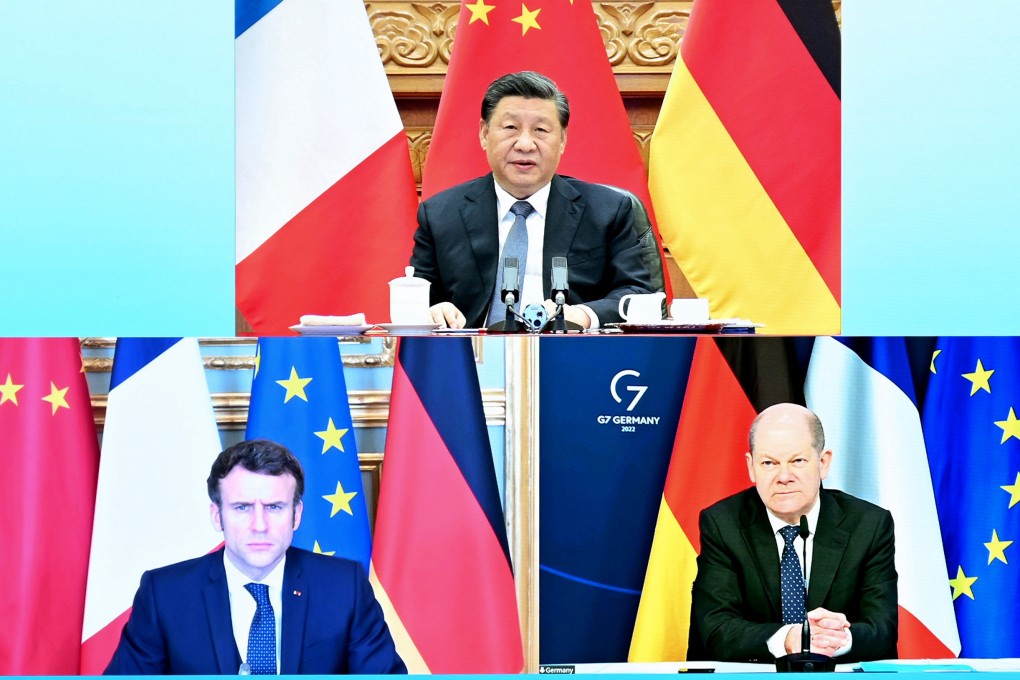Ukraine invasion: Xi warns Macron and Scholz against crippling Russian sanctions
- Sanctions will ‘drag down the world economy’, Xi Jinping tells French and German leaders
- China is being pressed to use its leverage with Russia to stop the bombardment

Xi told French President Emmanuel Macron and German Chancellor Olaf Scholz on Tuesday that he “deeply regretted the return of war to the European continent” and supported a diplomatic resolution to the crisis, which the United Nations said had left more than 400 civilians dead.
He reiterated Beijing’s opposition to sanctions, which have become a cornerstone of the West’s response to Russian aggression, according to the Chinese government’s version of the call.
“Maximum restraint” should be exercised to prevent a humanitarian disaster, Xi said, warning that sanctions will “drag down the world economy, which is already under the heavy burden of the pandemic”.
“This is not beneficial to all parties,” he was quoted as saying. “We must actively advocate a common, comprehensive, cooperative and sustainable security concept.”
Xi said China was willing to maintain “coordination with France, Germany and the EU, and play an active role with the international community”.